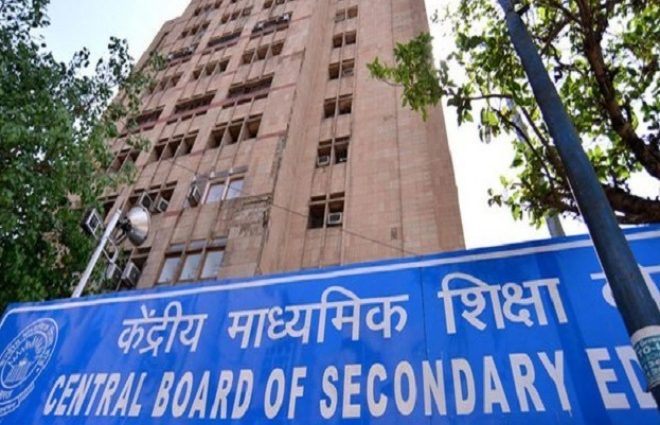It was a lesson in the sixth grade English textbook – an excerpt from the letter an exiled father wrote to his teenage daughter, which was later published by Allahabad Law Journal Press titled as ‘Letters from a Father to His Daughter’. Parts of the letter were very relatable, even though the entire subject was contextual. The lines where Jawaharlal Nehru asks his daughter Indira, ‘to work in the sun and in the light. Because things that are done in the dark, in secret will cause fear and destroy the braveness,’ struck a chord with me and helped me sift right from wrong throughout my life.
No wonder principles and knowledge gained during the formative years go a long way in shaping a person. These years constitute the most significant period when children develop consciousness of the world around, their relation with the surrounding, their role as a social entity, and their duties to the society, environment, country, and the world they belong.
School education serves as the backbone of civilized and aware societies because the concept of equality, justice, fair governance, citizen rights, etc. are taught to children during these years to groom them as responsible individuals when they grow up as adults.
The Constitution of India empowers an individual 18 years of age the right to vote. So, practically an individual should be aware of the rights and duties of citizenship before he is able to enjoy the most important pillar of a democratic set up – the right to vote. But here, lies the irony.
The Central Board of Secondary Education of India has recently revised the syllabus of grades 9 to 12 where it has decided to give up topics as important as democracy, diversity, citizenship, nationalism, secularism, democratic rights, why do we need local governments, planning commission and five year plans, India’s relations with its neighbors, social and social movements in India, regional aspirations, etc.
Now, how does the central board of education plans to educate young adults about the rights and duties they will be entrusted with as soon as they complete their secondary education? The HRD Minister has cited the unusual situation caused by the pandemic as the reason for such a move but he or any other official has not assured of the inclusion of these important topics once normalcy is restored. In an academic subject like political science, if concepts like democracy, constitution, diversity, citizenship, etc. do not constitute the core 70 percent of the syllabus, I wonder what makes up to the coveted list?
CBSE’s move is not a case in isolation as during the past few years concerns have been raised about the saffronization of school textbooks by many academicians and scholars. In 2016, a group of academicians who revised the textbooks of Rajasthan state board claimed that the revised editions of various books are marred by factual inaccuracies, poor delineation of marginalized sections like the Dalits, and are in line with the Hindutva ideology.
A news report published in 2017 by Huffington Post stated the role of an RSS affiliate body in convening a two-day workshop of 51 vice chancellors of various universities to discuss ‘national narrative’ in education. The RSS version of nationalism is an open book that needs no explanation. But is this pattern of disempowering crucial school education new in the history of societies? Certainly not, but what it is akin to is definitely alarming! A peep into history would tell you that much before the holocaust and the Second World War, Germany under the Nazis was reeling under an onslaught of another kind. It was a systemic change in the school curriculum to indoctrinate racial ideals of Nazis to raise a generation that was loyal to Hitler. Textbooks of history and biology were rewritten to promote the ideas of ‘Aryan supremacy’, Germany’s ‘greatness’ and ‘anti-Semitic’ sentiments.
Going by the logic of the current nationalist fervor propagated by the RSS, prominent freedom fighters of the independence movement would not have found a ground because most of them were educated abroad. Patriotism is not just pride for self and disdain for others but it is a deeper sense of responsibility for the less privileged and continuous striving to bring positive change in the lives of all who constitute the country.
Similarly, knowledge cannot be circumscribed by the narrow prejudices of societal and cultural myopia. Some of the most charismatic leaders of Indian independence struggle like Mahatma Gandhi, Jawaharlal Nehru, Dr. B. R. Ambedkar, Subhash Chandra Bose, and Sarojni Naidu who received higher education abroad proved it. Their love and commitment for the national cause is exemplary.
Curbing progressive and impartial education has been a handy tool of dogmatic ideologies, as they find the voice of reason their greatest impediment. The rise of the Taliban regime saw a similar pattern where schools were heavily targeted. In order to spread dogma, prejudice, and animosity among people of different groups the voice of reason needs to be silenced. Liberal education is antithetical to the ideals of supremacy, inequality, and oppression and therefore a perennial threat to its design.
So, while the country’s central board of education finds a reason to hold back important lessons in constitution, democracy, secularism, diversity and many more, its young minds need to ensure that these concepts are not forgotten and make a way back to the curriculum once normalcy sets in. Remember 2020 is also the year when the Preamble of the Indian Constitution was read and felt in its essence by millions on the streets and podiums across India echoing the very values it was written years ago, and the rendition should never stop

